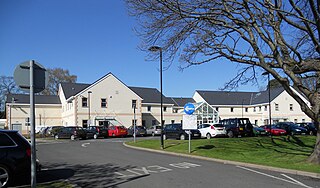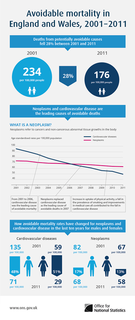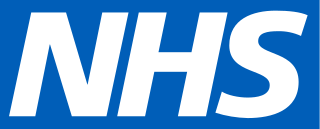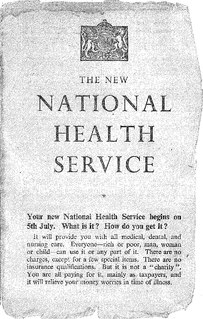Related Research Articles

Aneurin "Nye" Bevan PC was a Welsh Labour Party politician. Born into a working-class family in South Wales, he was the son of a coal miner. He left school at 13 and worked as a miner during his teens where he became involved in local union politics. He was named head of his Miners' Lodge when aged 19, where he frequently railed against management. He joined the Labour Party and attended Central Labour College in London. On his return to south Wales he struggled to find work, remaining unemployed for nearly three years before gaining employment as a union official, which led to him becoming a leading figure in the 1926 general strike.

Hugh Todd Naylor Gaitskell was Leader of the British Labour Party from 1955 until his death in 1963. An economics lecturer and wartime civil servant, he was elected to Parliament in 1945 and held office in Clement Attlee's governments, notably as Minister of Fuel and Power after the bitter winter of 1946–47, and eventually joining the Cabinet as Chancellor of the Exchequer. Facing the need to increase military spending in 1951, he imposed National Health Service charges on dentures and spectacles, prompting the leading left-winger Aneurin Bevan to resign from the Cabinet.
NHS Direct was the health advice and information service provided by the National Health Service (NHS), established in March 1998. The nurse-led telephone information service provided residents and visitors in England with healthcare advice 24 hours a day, every day of the year through telephone contact on the national non-geographic 0845 46 47 number. The programme also provided a web based symptom checkers on the NHS Direct website and via mobile, both as apps for iPhone and Android smart phones and a mobile website.

The Socialist Health Association is a socialist medical association based in the United Kingdom. It is affiliated to the Labour Party as a socialist society.

NHS Scotland, sometimes styled NHSScotland, is the publicly funded healthcare system in Scotland, and one of the four systems which make up the National Health Service in the United Kingdom. It operates fourteen territorial NHS boards across Scotland, seven special non-geographic health boards and NHS Health Scotland.

The name National Health Service (NHS) is used to refer to the free public health services of England, Scotland and Wales, individually or collectively. Northern Ireland is known as 'Health and Social Care' to promote its dual integration of health and social services.
Prescription charges, in the English NHS are charges made for prescription medications. The majority of adults are required to pay them. Charges were abolished in NHS Wales in 2007, Health and Social Care in Northern Ireland in 2010 and by NHS Scotland in 2011. In 2010/11, in England, £450m was raised through these charges, some 0.5% of the total NHS budget. In April 2021 the charge was raised to £9.35 per item.

Monnow Vale Integrated Health and Social Care Facility is a hospital at Drybridge Park in Monmouth, Wales. It is managed by the Aneurin Bevan University Health Board.

The National Health Service (NHS) is the publicly funded healthcare system in England, and one of the four National Health Service systems in the United Kingdom. It is the second largest single-payer healthcare system in the world after the Brazilian Sistema Único de Saúde. Primarily funded by the government from general taxation, and overseen by the Department of Health and Social Care, the NHS provides healthcare to all legal English residents and residents from other regions of the UK, with most services free at the point of use. Some services, such as emergency treatment and treatment of infectious diseases, are free for most people, including visitors.

Healthcare in Wales is mainly provided by the Welsh public health service, NHS Wales. NHS Wales provides healthcare to all permanent residents that is free at the point of need and paid for from general taxation. Health is a matter that is devolved, and considerable differences are now developing between the public healthcare systems in the different countries of the United Kingdom, collectively the National Health Service (NHS). Though the public system dominates healthcare provision, private health care and a wide variety of alternative and complementary treatments are available for those willing to pay.

The National Health Service (NHS) is the umbrella term for the publicly funded healthcare systems of the United Kingdom (UK). Since 1948, they have been funded out of general taxation. There are three systems which are referred to using the "NHS" name. Health and Social Care in Northern Ireland was created separately and is often locally referred to as "the NHS". The four systems were established in 1948 as part of major social reforms following the Second World War. The founding principles were that services should be comprehensive, universal and free at the point of delivery—a health service based on clinical need, not ability to pay. Each service provides a comprehensive range of health services, free at the point of use for people ordinarily resident in the United Kingdom apart from dental treatment and optical care. In England, NHS patients have to pay prescription charges; some, such as those aged over 60 and certain state benefit recipients, are exempt.

The National Health Service in England was created by the National Health Service Act 1946. Responsibility for the NHS in Wales was passed to the Secretary of State for Wales in 1969, leaving the Secretary of State for Social Services responsible for the NHS in England by itself.
Aneurin Bevan University Health Board (ABUHB) is the local health board of NHS Wales for Gwent, in the south-east of Wales. Headquartered in Caerleon, the local health board (LHB) was launched in October 2009 through the merger of Gwent Healthcare NHS Trust and Blaenau Gwent, Caerphilly, Newport, Torfaen, and Monmouthshire LHBs. It is named after Aneurin Bevan, a Member of Parliament who represented the area and who was the Minister of Health responsible for the foundation of the National Health Service. Aneurin Bevan University Health Board is the operational name of Aneurin Bevan Local Health Board.

Tredegar Medical Aid Society was founded in Tredegar in South Wales. In return for contributions from its members it provided health care free at the point of use. This society contributed the model which established the British National Health Service. According to Colin Ward, the model had "evolved from the vast network of friendly societies and mutual aid organisations that had sprung up through working class self-help in the 19th century."

Trafford General Hospital is a district general hospital in Davyhulme, Greater Manchester, England, managed by Manchester University NHS Foundation Trust.

Brian Abel-Smith was a British economist and expert adviser and one of the most influential figures of the twentieth century in shaping health and social welfare. In Britain, his research for the Guillebaud committee in 1956 proved that the NHS provided extremely good value for money and deserved more investment. From the 1960s he was one of a new breed of special advisers to Labour government ministers – helping Richard Crossman, Barbara Castle and David Ennals to reconfigure the NHS, set up Resource Allocation Working Party, and the Black Inquiry into Health Inequalities. Internationally, he steered the development of health services in over 50 countries. He was a key WHO and EEC adviser, intimately involved in setting the agenda for global campaigns such as Health for All by the year 2000.
From the founding of the National Health Service of the United Kingdom in 1948 until the reorganisation in 1974 the hospital management committee was the main instrument of local management. There were originally 377 committees which were answerable to the 14 regional hospital boards. The 36 teaching hospitals were outside this structure and reported directly to the Minister for Health.
Dentistry provided by the National Health Service in the United Kingdom is supposed to ensure that dental treatment is available to the whole population. Most dentistry is provided by private practitioners, most of whom also provide, on a commercial basis, services which the NHS does not provide, largely cosmetic. Most adult patients have to pay some NHS charges, although these are often significantly cheaper than the cost of private dentistry. The majority of people choose NHS dental care rather than private care: as of 2005, the national average proportion of people opting for private care was 23%. NHS dentistry is not always available and is not managed in the way that other NHS services are managed.

Health and social care on the Isle of Man is the responsibility of the Department of Health and Social Care. Healthcare is free for residents and visitors from the UK and there is a reciprocal health agreement with the UK. For several years it has required a supplementary vote to balance its budget at the end of each year. The Reciprocal Health Agreement only covers three months from the point of arrival in the UK.
The National Health Service Act 1952 is an Act of Parliament passed by the Parliament of the United Kingdom. It extended prescription charges and dental charges for National Health Service patients. The one shilling charge for prescriptions was introduced on 1 June 1952.
References
- ↑ Means, Robin; Smith, Randall (1998). From Poor Law to community care : the development of welfare services for elderly people 1939-1971 (2nd ed.). Bristol: Policy Press. p. 174. ISBN 9781861340856.
- 1 2 3 4 Chester, T. E. (June 1956). "The Guillebaud Report". Public Administration. 34 (2): 199–210. doi:10.1111/j.1467-9299.1956.tb01489.x.
- ↑ Davies, Peter (2007). The NHS in the UK : a pocket guide 2007/08 (9th ed.). London: NHS Confederation. p. 206. ISBN 9781859471364.
- ↑ Kynaston, David (2009). Family Britain 1951-7. London: Bloomsbury. p. 253. ISBN 9780747583851.
- ↑ Mr. R. H. Turton, Minister of Health (25 January 1956). "National Health Service (Guillebaud Report)". Parliamentary Debates (Hansard) . United Kingdom: House of Commons. col. 207.
- 1 2 3 4 5 Rudolf Klein (2010). The New Politics of the NHS: From Creation to Reinvention. Radcliffe Publishing. pp. 25–26. ISBN 978-1-84619-409-2.
- 1 2 3 4 "No Change In N.H.S." Times [London, England] 26 Jan. 1956: 8. The Times Digital Archive. Web. 26 Feb. 2014.
- ↑ "Budgeting for Health." Times [London, England] 26 Jan. 1956: 9. The Times Digital Archive. Web. 26 Feb. 2014.
- ↑ Charles Webster (1991). "Note on "Stuffing their Mouth with Gold"". Aneurin Bevan on the National Health Service. By Bevan, Aneurin. Charles Webster (ed.). Oxford: University of Oxford Wellcome Unit for the History of Medicine. pp. 219–220. ISBN 0906844096.